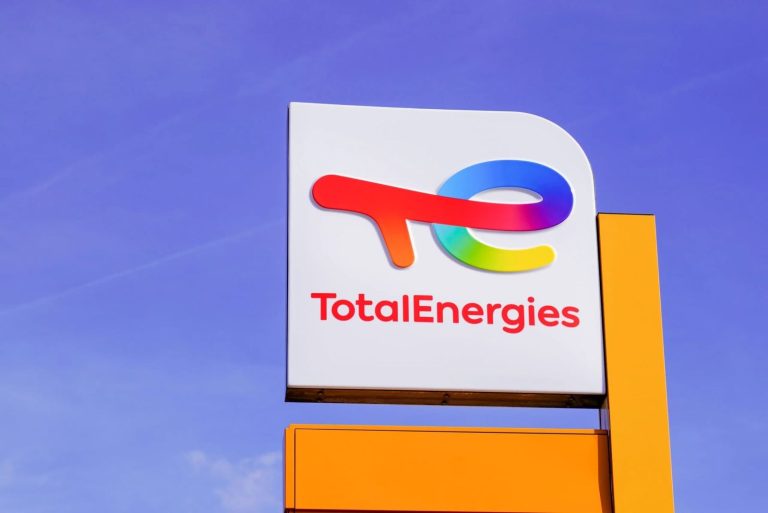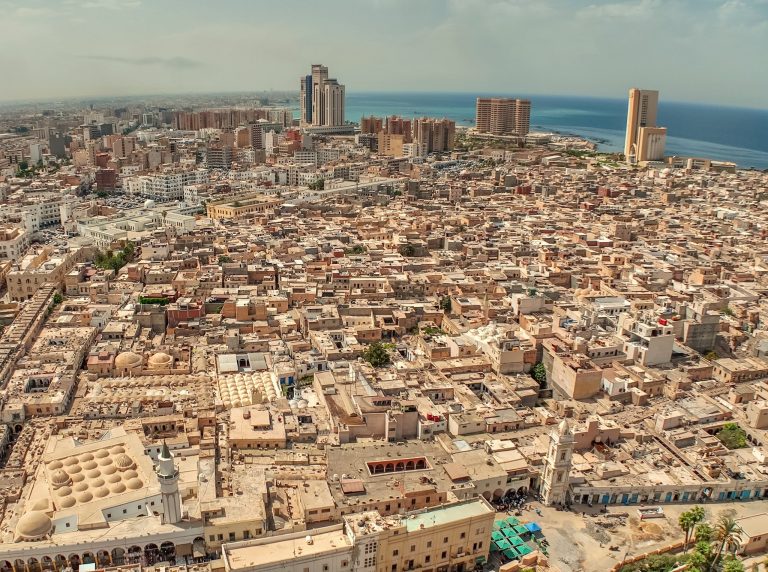As Libya continues to evolve economically and socially, conducting thorough feasibility studies becomes crucial for successful projects. We at Qabas leverage our deep understanding of the local market and regulatory landscape to deliver comprehensive assessments that guide strategic decision-making.
Our dedication to excellence ensures that every feasibility study we undertake sets industry benchmarks. We employ innovative methodologies and utilise the latest technologies to provide insightful and reliable analyses. Being a Libya-based service provider, we are committed to supporting our clients with tailored solutions that meet their unique needs and drive sustainable growth.
Table of Contents
![Top Feasibility Study in Libya [100% Free Consultation] 1 Top Feasibility Study in Libya [100% Free Consultation]](https://qbs.ly/wp-content/uploads/2024/12/Top-Feasibility-Study-in-Libya-100-Free-Consultation-1024x683.jpg)
Overview of Feasibility Studies
A feasibility study evaluates the practicality and viability of a proposed project or business idea in Libya. As a Libya-based service provider, we ensure our assessments align with the local market dynamics and regulatory frameworks, maintaining an ethical stance free from corruption. Our expertise facilitates informed decision-making, enabling stakeholders to understand the potential challenges and opportunities associated with their initiatives.
Purpose and Scope
A feasibility study determines whether a project’s objectives are achievable by assessing critical factors:
- Financial Viability: We analyse resource allocation, projected return on investment (ROI), and cash flow to ensure economic sustainability.
- Technical Requirements: We evaluate the technological infrastructure and capabilities needed to support the project’s success.
- Legal Constraints: We examine regulatory requirements and legal implications to ensure compliance and mitigate risks.
- Market Demand: We assess market trends and consumer behaviour to validate the demand for the proposed product or service.
Components of a Feasibility Study
Our feasibility studies encompass several key components to provide a holistic evaluation:
- Technical Feasibility: We assess the necessary technology, equipment, and technical expertise required for project implementation. This includes evaluating existing systems and identifying potential upgrades or integrations to support project objectives.
- Economic Feasibility: We conduct a thorough financial analysis, including cost estimation, financial projections, and ROI calculations. This component ensures that the project is economically sustainable and aligns with financial goals.
- Legal Feasibility: We review relevant laws, regulations, and legal requirements that may impact the project. This includes obtaining necessary permits, ensuring compliance with local and international standards, and addressing any potential legal challenges.
| Feasibility Component | Key Considerations |
|---|---|
| Technical | Technology needs, infrastructure, technical expertise |
| Economic | Cost analysis, ROI, financial projections |
| Legal | Regulatory compliance, permits, legal obligations |
| Market | Market demand, consumer behaviour, competition analysis |
By meticulously analysing these components, we provide reliable insights that support strategic planning and successful project execution.
![Top Feasibility Study in Libya [100% Free Consultation] 2 Document and Records Management Solutions in Libya: Official Oracle™ Partner](https://qbs.ly/wp-content/uploads/2024/09/Document-and-Records-Management-Solutions-in-Libya-Official-Oracle-Partner-1024x575.jpg)
Importance of a Top Feasibility Study in Libya
Feasibility studies are pivotal in navigating Libya’s intricate economic landscape. They provide essential insights that guide strategic decision-making and sustainable growth.
Economic Significance
Feasibility studies assess project viability across key sectors such as energy, construction, agriculture, and tourism. By evaluating market demand, financial parameters, and regulatory requirements, we enable informed investment decisions. Libya’s economy has traditionally relied on oil production, contributing over 95% of export revenues as of 2023. Our studies facilitate economic diversification by exploring opportunities in renewable energy, including wind farms. These assessments identify optimal locations and evaluate economic viability, promoting a balanced and resilient energy sector. Additionally, our expertise in financial analysis ensures projects align with economic goals, supporting Libya’s efforts to stabilize and expand its economic base.
Strategic Benefits
Conducting feasibility studies offers strategic advantages by mitigating risks and optimizing resource allocation. We identify potential challenges early, allowing for proactive solutions and reducing the likelihood of project failures. Our technical feasibility assessments ensure that the necessary technology and expertise are in place, while legal feasibility reviews confirm compliance with Libya’s regulatory frameworks. By providing detailed market analysis, we help businesses understand competitive dynamics and consumer behaviour, enhancing their ability to capture market share. Furthermore, our focus on sustainability ensures that projects contribute to long-term economic and social objectives, reinforcing Libya’s strategic development goals.
Key Components of a Feasibility Study
We identify several essential components to ensure the viability and success of a project in Libya. Our focus on these areas provides reliable insights for strategic decision-making.
Market Analysis
Market analysis is crucial in Libya’s dynamic economic environment. We assess market demand by evaluating the size, growth potential, and customer behaviour through both primary and secondary research. Understanding these elements allows us to gauge whether there is a sustainable need for the product or service within the Libyan market.
Additionally, we examine the competitive landscape by identifying direct and indirect competitors. Our analysis includes evaluating their strengths, weaknesses, and market share. This thorough assessment helps us determine the strategic positioning required to achieve a competitive advantage.
Technical Feasibility
Technical feasibility examines the necessary technology and expertise required for project implementation. We evaluate the availability of resources, the suitability of existing technology, and the technical skills required to execute the project successfully.
Our team ensures that all technical aspects align with the project’s objectives and regulatory standards. By addressing potential technical challenges early, we facilitate smooth project execution and mitigate risks associated with technology and resource constraints.
![Top Feasibility Study in Libya [100% Free Consultation] 3 Libya Oil and Gas Companies Driving Economic Growth Amidst Challenges](https://qbs.ly/wp-content/uploads/2024/11/Libya-Oil-and-Gas-Companies-Driving-Economic-Growth-Amidst-Challenges-1024x575.jpg)
Economic Considerations
Assessing the economic landscape is crucial for determining the viability of projects in Libya. We focus on key areas such as cost analysis and revenue projections to provide accurate insights.
Cost Analysis
Conducting a detailed cost analysis involves evaluating all expenses associated with a project. This includes initial capital investment, operational costs, and potential contingencies. In Libya, the high dependence on the oil and gas sector influences cost structures significantly. For instance, fluctuations in global oil prices can impact project budgets, especially in energy-related ventures. Additionally, understanding local market conditions helps us estimate costs related to labour, materials, and regulatory compliance. By meticulously analysing these factors, we ensure that our clients receive precise financial assessments tailored to Libya’s unique economic environment.
Revenue Projections
Accurate revenue projections are essential for forecasting the financial outcomes of a project. In Libya, where oil and gas contribute approximately 97% of government revenue and around 60% of GDP, revenue estimations must account for sector-specific dynamics. We analyse market demand, pricing trends, and potential growth areas to project future revenues. Our expertise allows us to incorporate variables such as market volatility and economic diversification efforts into our models. By leveraging historical data and current economic indicators, we provide reliable revenue forecasts that support strategic decision-making and investment planning.
Political and Legal Environment
Understanding Libya’s political and legal environment is crucial for conducting effective feasibility studies. Libya remains fragmented and unstable, with multiple governing institutions including the House of Representatives and the High Council of State operating simultaneously. This fragmentation leads to disputes over resource distribution, particularly hydrocarbons, which are Libya’s primary income source.
In 2023, a revenue-sharing deal between Prime Minister Abdul Hamid Dbeibeh and Marshal Khalifa Haftar temporarily resolved the blockade of oil wells by armed groups aligned with the Libyan National Army (LNA). However, such agreements are fragile and do not address the underlying issues of resource allocation and governance. If political disputes persist, businesses may face challenges in securing consistent resource access and regulatory support.
The presence of armed groups with significant influence complicates the legal landscape. These groups often control key resources and infrastructure, creating uncertainties for project implementation. Our expertise in navigating this complex environment allows us to identify and mitigate risks associated with political instability. We provide legal feasibility assessments that consider the implications of fragmented governance and the potential impact of armed group activities on project viability.
Libya’s legal framework is still evolving, with ongoing efforts to establish unified regulations and policies. This uncertainty can affect project approvals, licensing, and compliance requirements. We ensure that our feasibility studies include thorough analyses of current laws and anticipate future regulatory changes. By staying informed about the latest legal developments, we help our clients make informed decisions and adapt to shifting legal conditions.
Moreover, the lack of popular legitimacy among governing institutions reinforces the influence of non-state actors, which can hinder the prospects of national unity and stable governance. If political fragmentation continues, it may lead to inconsistent enforcement of laws and regulations, increasing the complexity of operating in Libya. Our local presence and deep understanding of the political landscape enable us to provide nuanced insights and strategic recommendations that align with Libya’s dynamic political environment.
By addressing these political and legal challenges, we support our clients in assessing the feasibility of their projects with a clear understanding of the risks and opportunities present in Libya. Our commitment to ethical practices and transparency ensures that our feasibility studies uphold the highest standards of integrity, fostering trust and reliability in our assessments.
![Top Feasibility Study in Libya [100% Free Consultation] 4 Digital Archiving Solutions in Libya: Official Oracle™ Partner](https://qbs.ly/wp-content/uploads/2024/09/Digital-Archiving-Solutions-in-Libya-Official-Oracle-Partner-1024x730.jpg)
Challenges and Risks
Challenges in Data Collection
Obtaining accurate data in Libya presents significant obstacles due to limited reliable sources. Market information and demographic statistics often lack precision, complicating feasibility analyses. We address this by engaging local stakeholders and leveraging community knowledge to enhance data accuracy. Our approach ensures that our assessments reflect the true market conditions, providing a solid foundation for project viability.
Political Instability
Libya’s political landscape is characterised by frequent changes and uncertainties, which can disrupt project timelines and stakeholder engagement. We develop flexible study plans that adapt to evolving political scenarios, maintaining project continuity. By fostering strong relationships with local authorities, we navigate the complexities of the political environment effectively. This strategic collaboration mitigates risks and ensures that our feasibility studies remain relevant and actionable.
Economic Volatility
Fluctuations in global oil prices significantly impact Libya’s economy, posing risks to project financials. We conduct thorough economic analyses, incorporating various scenarios to assess potential outcomes. Our expertise in Libya’s economic dynamics allows us to forecast changes accurately and recommend strategies that enhance project resilience against market volatility.
Legal and Regulatory Complexities
Libya’s fragmented legal system can create challenges in navigating regulatory requirements. We stay informed about the latest legal developments and ensure our feasibility studies comply with all relevant laws and regulations. Our comprehensive understanding of the legal framework enables us to identify potential hurdles early, facilitating smoother project implementation.
Security Concerns
Security issues in certain regions of Libya can affect project operations and personnel safety. We conduct detailed risk assessments and implement robust security measures to protect our teams and project assets. Our commitment to maintaining a secure working environment ensures that our feasibility studies can proceed without compromising safety.
Infrastructure Limitations
Inadequate infrastructure can hinder project execution and scalability. We evaluate existing infrastructure conditions and identify necessary improvements to support project requirements. Our recommendations include strategic investments in infrastructure to ensure projects are sustainable and scalable within Libya’s context.
By addressing these challenges and risks with our local expertise and strategic approach, we provide reliable feasibility studies that support successful project outcomes in Libya.
Conclusion
Embarking on a feasibility study in Libya equips us with the insights necessary to navigate its unique landscape. By leveraging our local expertise and innovative approaches, we ensure that each project aligns with both market demands and regulatory standards.
Our commitment to sustainability and risk mitigation supports strategic decision-making, fostering growth across key sectors. As Libya continues to diversify its economy, our tailored solutions play a crucial role in unlocking new opportunities and driving long-term success.
Together, we can turn complex challenges into viable ventures, contributing to Libya’s ongoing development and prosperity.
Frequently Asked Questions
What is a feasibility study and why is it important in Libya?
A feasibility study assesses the practicality and viability of a proposed project or business idea in Libya. It evaluates critical factors such as financial viability, technical requirements, legal constraints, and market demand. Conducting a feasibility study ensures that projects align with local market dynamics and regulatory frameworks, helping businesses make informed decisions. In Libya’s evolving economic and social landscape, these studies are crucial for minimizing risks, optimizing resource allocation, and promoting sustainable growth.
How does Qabas conduct feasibility studies in Libya?
Qabas leverages its deep understanding of the Libyan market and regulatory environment to perform comprehensive feasibility studies. The company employs innovative methodologies and the latest technologies to analyse technical, economic, and legal feasibility. Qabas conducts thorough market analysis, evaluates financial projections, and assesses legal constraints to provide reliable insights. By engaging local stakeholders and adapting to Libya’s unique challenges, Qabas ensures that its assessments support strategic planning and successful project execution.
What sectors benefit most from feasibility studies in Libya?
Feasibility studies are particularly valuable in Libya’s key sectors such as energy, construction, agriculture, and tourism. In the energy sector, studies explore opportunities in renewable energy like wind farms. In construction and agriculture, they assess market demand and technical requirements. Tourism projects benefit from evaluating growth potential and customer behaviour. By providing detailed analyses tailored to each sector, Qabas helps businesses navigate Libya’s intricate economic landscape and make informed investment decisions.
What are the key components of a feasibility study?
A comprehensive feasibility study includes technical feasibility, economic feasibility, and legal feasibility. Technical feasibility examines the necessary technology and expertise for project implementation. Economic feasibility involves financial analysis, cost assessments, and ROI calculations. Legal feasibility reviews relevant laws and regulations to ensure compliance. Additionally, market analysis and risk assessment are crucial components. By meticulously analyzing these elements, Qabas provides insightful and reliable evaluations that support strategic decision-making.
How does Qabas address the challenges of conducting feasibility studies in Libya?
Qabas tackles challenges such as data collection difficulties, political instability, and economic volatility by engaging local stakeholders and utilizing reliable data sources. The company develops flexible study plans to adapt to changing political scenarios and conducts thorough economic analyses to account for fluctuations in global oil prices. Qabas navigates Libya’s fragmented legal system by ensuring compliance with relevant laws and staying updated on regulatory changes. Security concerns and infrastructure limitations are managed through comprehensive risk assessments and strategic investment recommendations.
Why is market analysis crucial in feasibility studies conducted by Qabas?
Market analysis is essential in assessing the demand, growth potential, and competitive landscape of a project in Libya. Qabas conducts both primary and secondary research to understand customer behaviour and market trends. This analysis helps determine strategic positioning and competitive advantage, ensuring that projects meet local market needs. By evaluating market dynamics, Qabas enables businesses to make informed decisions, enhance their strategic planning, and increase the likelihood of project success in Libya’s dynamic economic environment.
How do feasibility studies contribute to Libya’s economic diversification?
Feasibility studies conducted by Qabas evaluate opportunities beyond the oil sector, such as renewable energy, construction, agriculture, and tourism. By assessing market demand, financial viability, and regulatory requirements in these areas, feasibility studies promote investment in diverse industries. This diversification reduces Libya’s dependence on oil, supports sustainable economic growth, and aligns with the country’s long-term strategic development goals. Qabas’s insights help identify viable projects that contribute to a more balanced and resilient Libyan economy.
What role does Qabas play in mitigating risks for projects in Libya?
Qabas plays a pivotal role in risk mitigation by identifying potential challenges early in the feasibility study process. Through thorough technical, economic, and legal analyses, Qabas highlights risks such as data inaccuracies, political instability, and economic fluctuations. The company provides proactive solutions and strategic recommendations to address these risks, reducing the likelihood of project failures. By ensuring projects are well-planned and aligned with Libya’s regulatory and market conditions, Qabas helps clients navigate uncertainties and achieve successful outcomes.
How does Qabas ensure compliance with Libyan laws and regulations in its studies?
Qabas ensures compliance by staying informed about the latest legal developments and regulatory changes in Libya. The company conducts detailed legal feasibility assessments, reviewing relevant laws and regulations that impact project implementation. Qabas’s expertise in the fragmented legal landscape of Libya allows it to navigate complexities and address potential legal challenges effectively. By maintaining high standards of integrity and reliability, Qabas helps clients adapt to shifting legal conditions and ensure their projects meet all necessary legal requirements.
What technologies does Qabas use in conducting feasibility studies?
Qabas utilizes the latest technologies and innovative methodologies to conduct thorough feasibility studies. This includes advanced data analysis tools, geographic information systems (GIS) for market and technical assessments, and financial modelling software for economic evaluations. These technologies enable Qabas to gather accurate data, perform detailed analyses, and generate insightful reports. By integrating cutting-edge tools into their processes, Qabas ensures that their feasibility studies are comprehensive, reliable, and tailored to the unique requirements of projects in Libya.




